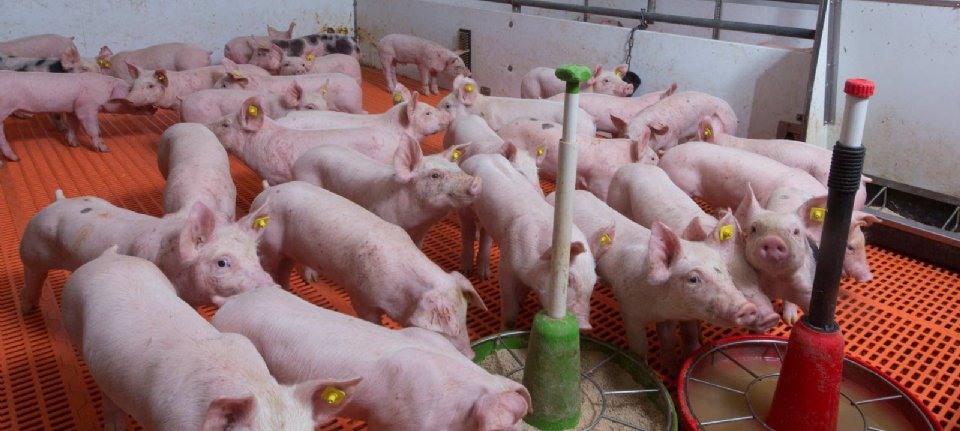Reducing antibiotic resistance by gaining a better understanding of the factors that influence the gut health of pigs. This is one of the goals of the PIG-Paradigm project, in which five universities in Denmark, the Netherlands and the United States will conduct extensive research for five years.
–
Like humans, pigs develop a complex gut microbiome shortly after birth. The piglet receives this gut microbiome from the mother and the environment and consists of bacteria, fungi, archaea (single-celled organisms without a nucleus) and viruses.
“In PIG-Paradigm we will investigate how this gut microbiome develops during the pig’s life and how changes in feed composition, the environment and the like affect this microbiome,” said Hauke Smidt, professor at the Laboratory of Microbiology and scientific director of Unlock Research. Infrastructure at Wageningen University & Research.
Combination of expertise
‘Thanks to the unique combination of expertise from all participating universities, we can decipher the interactions of the developing pig, its diet and its gut microbiome. We convert that knowledge into healthier pigs’, says Smidt.
One of the important factors influencing the gut microbiome is weaning of the piglets. By separating the sows, adapting to a new environment and a new diet, the piglets are susceptible to intestinal infections and diarrhea can develop. Antibiotics are sometimes necessary to prevent transmission of diseases, suffering and death of piglets.
During the five-year project, the development of the gut microbiome and all factors that influence it will be investigated. Part of the project is a large cohort study, in which the pigs are followed throughout their lives, with about two thousand animals. This will be carried out in Denmark under practical conditions.
Interventiestudies
Intervention studies are conducted under controlled conditions at the various universities. This includes, for example, the effect of changes in feed, environment and antibiotic use on the gut microbiome. The effect of differences in genetic predisposition is also included in the study. ‘We really look at the pig and the development of the gut microbiome from all possible and impossible angles’, emphasizes Smidt.
‘This gives us knowledge about how we can increase the natural defenses and immunity of the pig gut. If this improves, it reduces the risk of diarrheal diseases and therefore the need for antibiotics’, says coordinator Charlotte Lauridsen. She is also a professor and head of the Department of Animal Sciences at Aarhus University.
Reducing antibiotic resistance
The larger goal behind the project is to reduce the threat of antibiotic resistance developing. If the development of resistance in the world continues at its current pace, it could become the third leading cause of death in humans in thirty years’ time. The Netherlands and Denmark have already implemented rules to reduce the use of antibiotics, but the use of antibiotics is still increasing worldwide.
The PIG-Paradigm project aims to provide a global solution. ‘Using antibiotics or, for example, zinc does not solve the problem of diarrhea or other diseases in pigs,’ says Smidt. ‘This should be possible with a good understanding of the gut microbiota. This allows you to keep the pigs healthy without antibiotics. Or at least with only antibiotics for real emergencies.’
Over PIG-Paradigm
The project is called Preventing Infection in the Gut of developing Piglets – and thus Antimicrobial Resistance – by disent Angling the interface of Diet, the host and the Gastrointestinal Microbiome (PIG-Paradigm). It runs from 2022 to 2027. The Novo Nordisk Foundation makes the research possible with a grant of 20.1 million euros. The five main parties in the project are Wageningen University & Research, Aarhus University, Aalborg University, University of Copenhagen in Denmark and the University of California, Davis in the United States.
–


